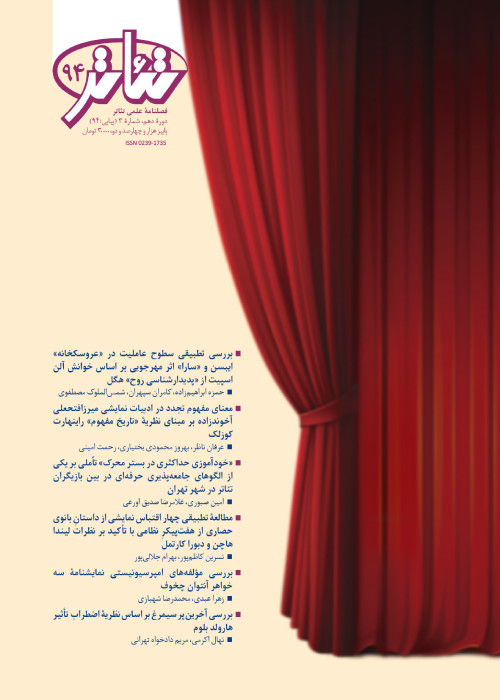Analysis of Perceptual Principles and Components Affecting the Theatrical Place Design in Children’s Theater Performance in the Pre-Operational Stage (2-7 Years) According to Jean Piaget's Theory of Cognitive Development
Theater is an experience of performance that its fields of representation and creativity have always been considered according to the cognitive, educational and training needs of children. Explaining the four stages in his cognitive-developmental theory, Jean Piaget deals with how the individual emerges from sensory-motor activities to excellent intuitive activities with social life, rational thought, and reasoning operations. One of the salient features of the second stage of development as a pre-operational period (2to 7years) is the evolution of representational forms and the acceleration of conceptualization with pre-logical or quasi-logical reasoning, which can be done by children’s theater, and taking advantage from each of the elements of the performance, including the theatrical perspective and presenting images appropriate to this stage. This article seeks to answer the fundamental question of how the perceptual principles and components influencing the design of a play in children’s theater performance can bring to attention and influence children’s perception of space and place, based on their basic mindsets and mindsets based on spatial experience. The present qualitative research, based on library resources and reputable websites, considers the perceptual aspects of the relationship between the audience and the play to explore the components affecting perception and visual communication and mental interaction in the children’s Theater scenography, examining the Walt Disney Company’s executive model, and provides an effective model for analyzing the plays of this age group, arguing that recognizing the perceptual powers and how the child mentally interacts with the phenomenon of place and its components in performance, will lead to the internalization of the subject, story and concepts and will be the basis for externalization and creativity.
- حق عضویت دریافتی صرف حمایت از نشریات عضو و نگهداری، تکمیل و توسعه مگیران میشود.
- پرداخت حق اشتراک و دانلود مقالات اجازه بازنشر آن در سایر رسانههای چاپی و دیجیتال را به کاربر نمیدهد.


